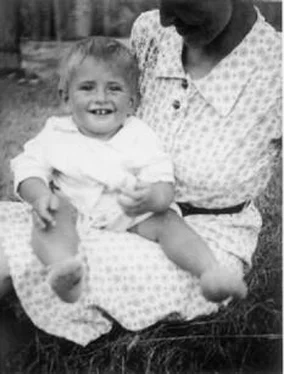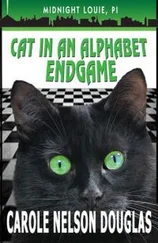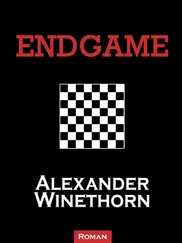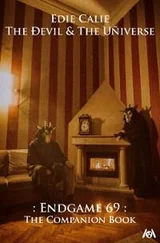FIDE agreed to the ten-game-win idea but voted against the 9–9 rule. Also, instead of approving the idea of an unlimited number of games, it narrowed the number to thirty-six—which struck Bobby as an outrageously small number if draws weren’t going to count. This was hardly a compromise. Bobby claimed that his system would actually reduce the number of draws, that it would produce games in which the players would take more chances, trying to achieve wins rather than half points.
Fischer cabled the FIDE Extraordinary Council in the Netherlands that his match condition proposals were “non-negotiable.” He also pointed out in Chess Life & Review that his demands weren’t unprecedented and had been used in many great championship matches: “Steinitz, Tchigorin, Lasker (too), Gunsberg, Zukertort … all played under the ten-win system (and some matches with the 9–9 clause). The whole idea is to make the players draw blood and give the spectators their money’s worth.”
Colonel Edmund B. Edmondson, the executive director of the U.S. Chess Federation, attempted in vain to get FIDE to change its vote, or get Bobby to change his mind. The story of the machinations employed to enable the Fischer-Karpov World Championship match to take place are enough to fill a separate book—and have!—but the details are hardly dramatic in retrospect.
Fischer continued his intransigence: FIDE must change the rules to meet his demands or he simply wouldn’t play. He began making God-like pronouncements about the match to his friends: “I will punish them and not play,” as if retribution was his sovereign right to dispense. The deadline for moving ahead or abandoning the match was looming, and then it came … and went, with no further word from the champion. FIDE gave Bobby one more day to change his mind. Euwe finally cabled him:
YOUR PROFESSIONALISM, COMPETITIVE SPIRIT, AND OUTSTANDING SKILL HAVE THRILLED ALL DURING THE YEAR YOU FOUGHT TO ATTAIN THE WORLD CHAMPIONSHIP. FIDE GENERAL ASSEMBLY ASKS THAT YOU RECONSIDER POSSIBLITY OF DEFENDING TITLE.
When Bobby didn’t answer and the press interviewed Euwe about it, he issued an apt reply: “At the moment we are in a complete stalemate.” Bobby was about to checkmate himself, however.
The next day he sent the following cable (in part) to Euwe:
FIDE HAS DECIDED AGAINST MY PARTICIPATION IN THE 1975 WORLD CHESS CHAMPIONSHIP. THEREFORE, I RESIGN MY FIDE WORLD CHESS CHAMPIONSHIP TITLE. SINCERELY, BOBBY FISCHER.
His echo of resolve was heard around the world.
The New York Times ran a story by international grandmaster Robert Byrne, “Bobby Fischer’s Fear of Failing,” which opined that Bobby’s fears had always kept him out of certain tournaments because he thought if he lost a game or two at the beginning of an event, he was practically eliminated as a prizewinner. The main fear of every top notch chess player, the story went on, “is the inexplicable error from which no one is immune,” the chance blunder. Even Paul Marshall, Bobby’s lawyer, addressed Bobby’s “dread”: “Bobby fears the unknown, whatever lies beyond his control. He tries to eliminate any element of chance from his life and his chess.” What everyone seemed to overlook was that at the board Bobby feared no one. He did show nervousness before a game, as certain great actors show stage fright before a demanding performance, but this state of anxiety shouldn’t be confused with fear. This anxiety was the mother of Bobby’s foresight, it kept him on edge and gave him an advantage. Ultimately, it was his supreme confidence in himself that made him a great player.
A psychoanalyst, M. Barrie Richmond, M.D., wrote a dissertation titled “The Meaning of Bobby Fischer’s Decision” that took issue with Robert Byrne and held that Fischer should be thought of as a profound artist, a phenomenon on the order of a Picasso. Richmond maintained that Bobby’s failure to defend his title bespoke a responsibility he felt to himself as the World Champion: His attempt to shape, create, and alter his own universe of rules addressed that burden and had nothing to do with fear.
Without moving a pawn, on April 3, 1975, Anatoly Karpov was declared the twelfth World Champion by Dr. Max Euwe, president of FIDE. And on that day, Bobby Fischer became the first-ever champion to willingly relinquish the title and along with it the chance to compete for the winner’s share of a $5 million purse … five million dollars! It was the largest refusal of a prize fund in sports history. The winner would have received $3.5 million, and the loser would have walked away with $1.5 million, guaranteed. It was all declined, and over a mere rules dispute.
“I had no idea why Fischer refused to defend his title,” Karpov later said, somewhat coldly. Although he was champion, he was without a convincing portfolio, his right to wear the crown left in doubt by Bobby’s shadow. He was also bereft of the millions of dollars he would have received had the two men played. He huffed: “It is an unprecedented instance in chess history.”
Just to get away from it all—the World Championship imbroglio and the constant stalking of him by reporters and photographers—Bobby took a two-month cruise by himself around the world. His boat trips in the past—to and from Europe, and from the Philippines to the United States via Hong Kong—had been thoroughly relaxing: no telephone contact, no mail, no people bothering him, and magnificent meals served all day long. It was heaven. Now that he’d grown a beard, most people didn’t recognize him, and he recaptured the peace and incognito of his earlier trips. It eased him into a placid mood, at least for the trip’s duration. He was still prone to ruminate on race and religion, however, and at one point he wrote to Ethel Collins that he liked Indonesia, where he stayed on a farm for a few days while the boat docked at Bali. Noting that most of the people were Muslims, Bobby seemed pleased that they’d retained their “cultural purity.” At New Delhi, he bought for $15 a peg-in travel chess set with a beautifully detailed design that was made of fragrant sandalwood—but he felt guilty about paying so little for it. He realized that the artisan who carved it probably received only a fraction of the sale price for his labor.

Bobby was content in his basement apartment on Mockingbird Lane in South Pasadena, a small, quiet place out of sight from the world, and he lived there for several years. His friends from the Church, Arthur and Claudia Mokarow, owned the house, and Claudia became a kind of buffer for Bobby, answering queries, shooing away reporters, and serving as his majordomo and resident Gorgon, even to the point of considering offers (and rejecting them) without even discussing them with Bobby.
Bobby’s support came from unexpected sources. New York City’s mayor Edward I. Koch wrote him a letter trying to convince him to come back to the chessboard. “Your extraordinary skill and genius at the most difficult of games is a source of pride to me and to all who stand in the light of your remarkable accomplishments.”
Often, photographers or reporters staked out the front of the house, attempting to get Bobby’s photograph or interview him. He once said that the only thing he feared was a journalist, and slipping in and out of the house without being confronted by the press took the ingenuity of a Houdini and the dexterity of a gymnast. Sometimes it sent Bobby into a panic.
If a friend wanted to reach him, he or she would call Claudia first, and she’d run downstairs and either give Bobby the message or leave it for him, and then Bobby would call back if he so chose. Bobby never accepted calls directly unless he’d initiated them. Claudia would also drive him to and from certain out-of-the-way Los Angeles destinations; otherwise he was quite adept at traveling by bus to wherever he wanted to go. He became a man of routine: up and out by four p.m., and into Los Angeles or downtown Pasadena for his first meal of the day, followed by his hunt through the bookstores, searching, searching, searching. He loved Indian and Chinese food and consumed what seemed like barrelsful of salads whenever they were available.
Читать дальше



![Антон Текшин - EndGame [СИ]](/books/394477/anton-tekshin-endgame-si-thumb.webp)









